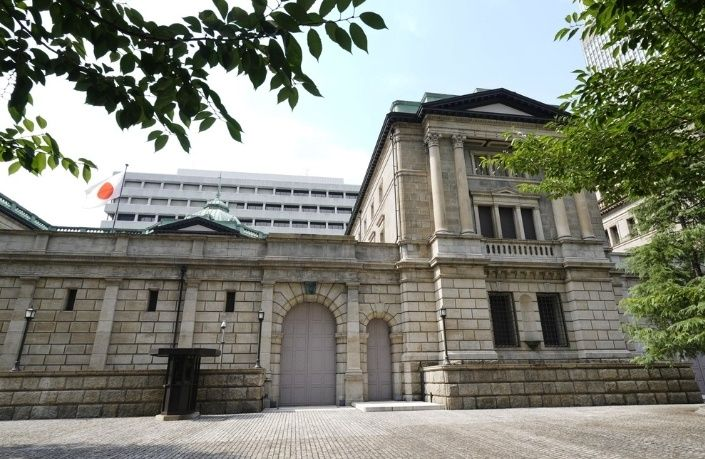
On March 19, local time, the Bank of Japan held a monetary policy meeting and decided to end the negative interest rate policy. It is the BOJ's first rate rise in 17 years and marks the start of a normalisation of ultra-loose monetary policy that has been maintained for about 11 years.
According to documents issued by the Bank of Japan, the boj decided to raise the policy rate from minus 0.1 per cent to a range of 0 to 0.1 per cent, and decided to end the yield curve control policy and stop buying exchange-traded funds and real estate investment trusts.
In order to achieve the inflation target, the Bank of Japan launched an ultra-loose monetary policy in 2013, began to implement a negative interest rate policy in February 2016, and began to implement a yield curve control policy in September of the same year, that is, through a large amount of bond purchases, to control the 10-year government bond yield within the target range.
The Bank of Japan's negative interest rate policy has long been an attempt to keep Japan from falling into deflation by stimulating lending by commercial banks. However, while it will boost weak economic growth in the short term, in the long run, the impact of ending the negative interest rate policy on the domestic banking sector is likely to be painful, with the following effects on the domestic economy:
First, higher interest rates could push up the value of the yen, affecting the competitiveness of Japanese exports. Japan has long relied on exports to drive economic growth, and if the yen rises, it could cause problems for exporters and thus affect economic growth.
Second, for Japanese consumers and businesses, the end of the negative interest rate policy may raise their borrowing costs, which will likely restrain consumption and investment activity, and have a certain negative impact on domestic demand in Japan.
Again, the end of the negative interest rate policy may affect Japan's capital market performance, as investors may need to readjust their investment strategies in response to the new interest rate environment. As a result, there may be a period of adjustment in the capital markets.
Overall, the Bank of Japan's sudden decision to end the negative interest rate policy is a big departure from the previous policy of "unlimited easing". This decision clearly reveals that global central banks are now more willing to take into account the higher returns required for the continued health of commercial banks, as well as a higher focus on the quality of economic growth.
At the same time, the Bank of Japan's decision may also trigger a rethink in the global banking industry. Both the European Central Bank, which already has a negative interest rate policy, and the U.S. Federal Reserve, which is considering a rate cut, could have implications. The end of negative interest rates may be heralding a new shift in the global economy.
In short, the BOJ's decision to exit negative interest rates will undoubtedly trigger a series of chain reactions in global financial markets. In the future, central banks may need to reassess their monetary policies, investors may need to adjust their investment strategies, and global financial markets will find a new equilibrium in the new interest rate environment.
As observers, people should also take this decision as an opportunity for reflection, to re-examine their understanding and acceptance of negative interest rates and monetary policy. As for how to view this decision of the Bank of Japan, it can be seen as a challenge and exploration of traditional monetary policy, and an opportunity to find more effective tools in theory and reality. While the road may be bumpy, greater understanding and reflection will lead the world to a healthier and more durable economy.

Recently, according to Xinhua News Agency, Israel's air strike on the southern suburbs of Beirut, the capital of Lebanon, has once again pushed the tense situation in the Middle East to the forefront.
Recently, according to Xinhua News Agency, Israel's air str…
A strongly worded report from the Equality Trust argues tha…
On November 27, 2025, Alibaba officially entered the global…
The focus of the global financial market in 2025 has always…
On November 25th local time, European Commission President …
As the Russia-Ukraine conflict remains deadlocked, diplomat…